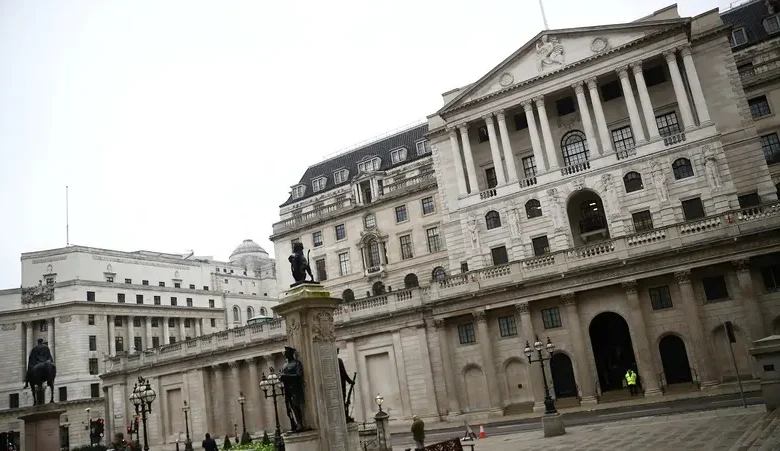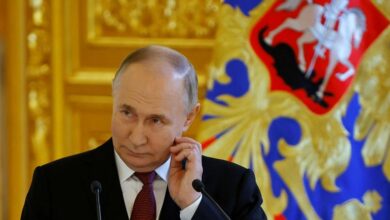Britain’s easing inflation puts end of BOE rate hikes in sight

Britain has turned the corner on the worst bout of inflation since 1981, raising the prospect that the Bank of England may soon complete its unprecedented interest-rate hiking cycle.
Investors are now betting the central bank’s key rate peaks at 4.5 percent this summer. That suggests one or two more increases from the current 4 percent. Just two months ago, a summer peak of closer to 5 percent was being priced in.
The UK is suffering a sharper inflation shock than the US or the euro area, which has left the BOE lagging the Federal Reserve in talk of a pivot away from rate hikes.
BOE Governor Andrew Bailey and his colleagues warn that they’ll have to respond if there are more signs that price increases will persist, but their hope is that falling energy prices will ease that pressure sharply this year.
The shift in the rates outlook is a ray of hope for Prime Minister Rishi Sunak, whose Conservative Party is trailing behind the labor opposition with the next general election less than two years away. Britons appear to be weathering the biggest cost-of-living squeeze in generations better than previously feared.
Gross domestic product was steady in the fourth quarter, defying the BOE’s warning that a recession had already begun. While Britain remains the only Group of Seven economy that has yet to recover the output lost during the pandemic, the downturn expected this year is likely to be the shallowest in a century.
Sunak promises to cut inflation in half this year, which he says will give households and businesses confidence to spend.
The concern is that inflation doesn’t tick down as quickly as the BOE anticipates. Prices increased 11.1 percent in October, the most in 41 years. That eased in each of the past three months, but the latest inflation reading at 10.1 percent remains five times the BOE’s target rate.
The BOE will be heartened by news that inflation in the services sector eased in January. It’s one of the key indicators being watched by policymakers, who see it as gauge of domestically generated inflation that is hard to shift once it takes hold.
The other red flag is wage growth, which is now running at the fastest pace on record outside of the pandemic as labor shortages hand workers unprecedented bargaining power.
The BOE fears inflation could become entrenched as companies keep raising prices to cover their salary costs. There were some some signs of hope in the latest data, however, with figures for December alone showing a slowdown in private-sector pay increases.
Hanging over the inflation outlook is Britain’s lack of potential growth. Hundreds of thousands of people have left the labor force over the past three years, many of them claiming sickness.
Sectors including hospitality and construction can no longer count on an easy pool workers from the European Union, in part due to a tightening of immigration rules since Britain left the bloc. Britain now employs 150,000 fewer EU-born workers than it did before the pandemic.
The other factor holding back the supply side of the economy is Britain’s continuing poor performance when it comes to productivity, which barely rose last year. All told, the BOE now reckons the economy can grow no more than 0.7 percent a year without adding to inflation.










